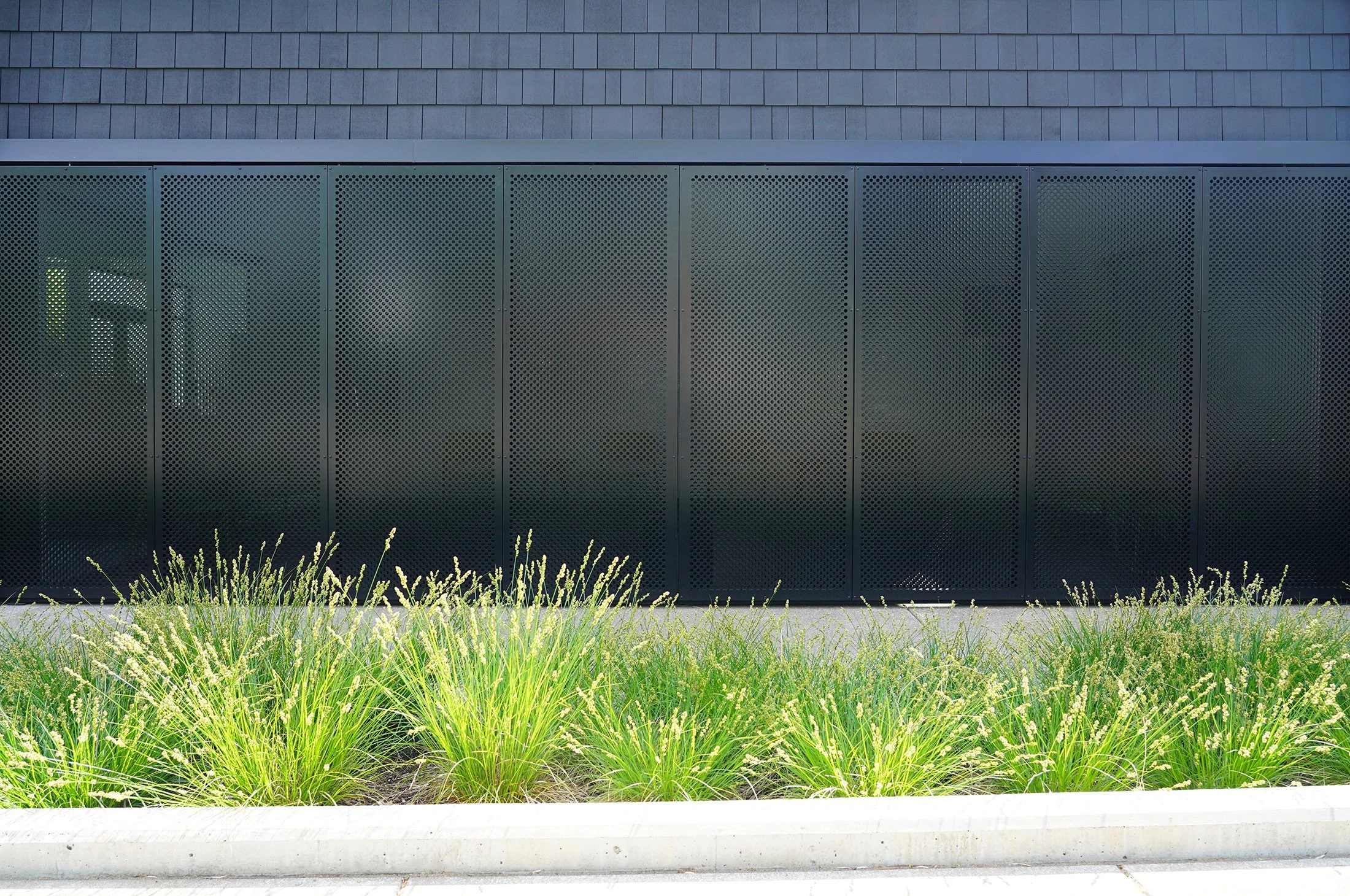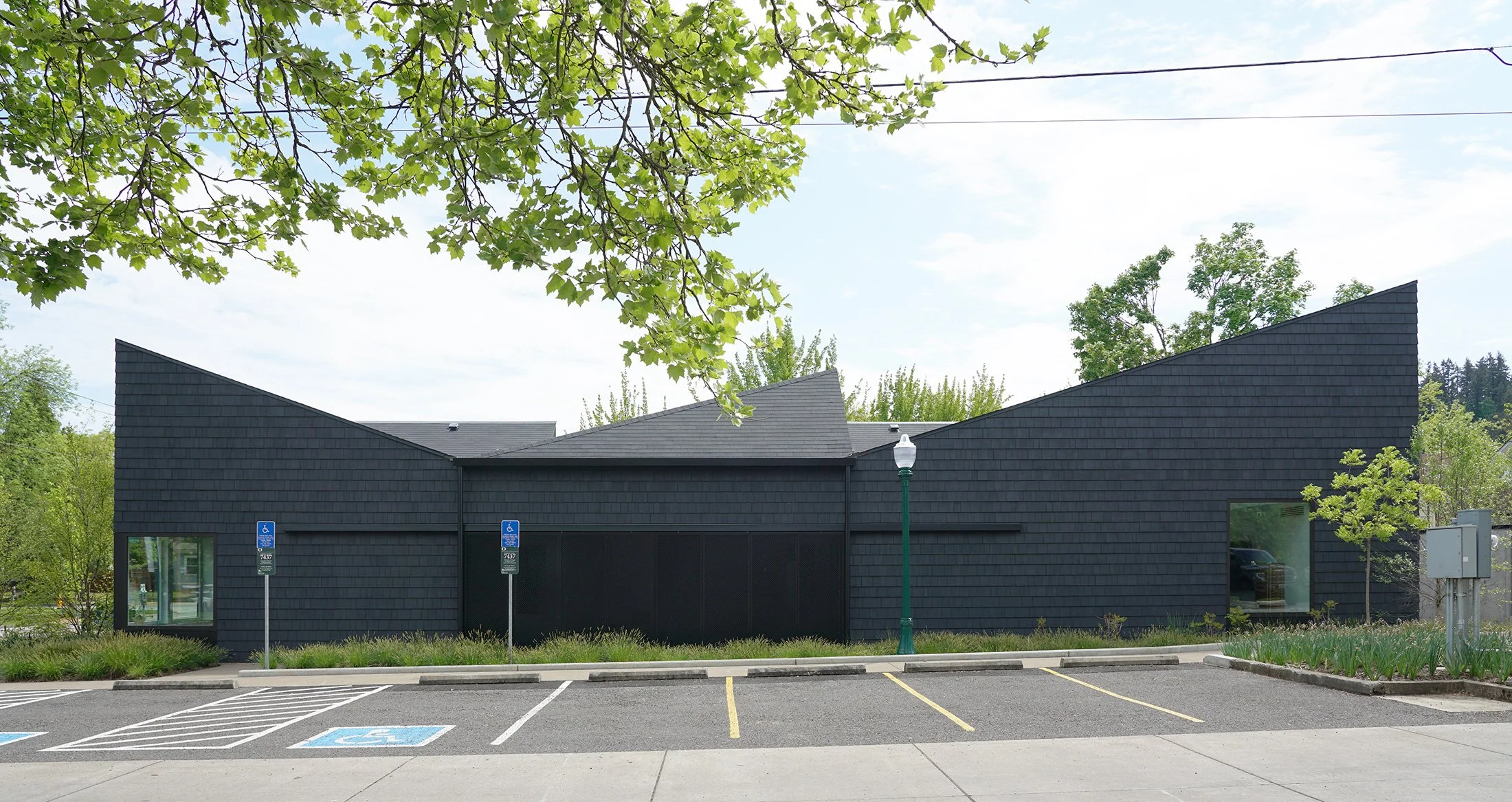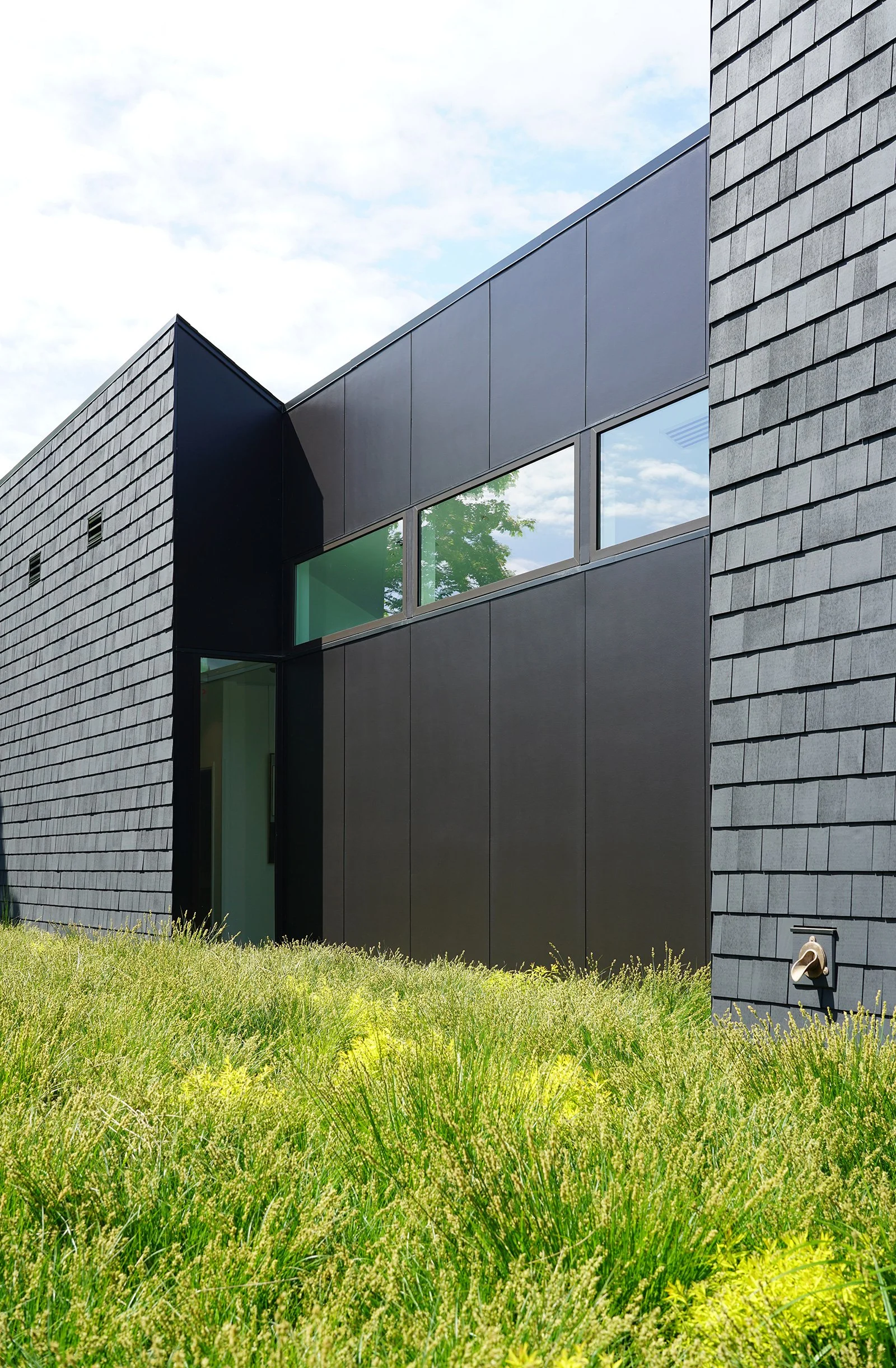Lyllye Reynolds-Parker Black Cultural Center
The Black Cultural Center’s architecture concept is based on four interrelated Black concepts: the Veil, the shotgun house type, autonomy and curatorial. While attempting to achieve a unique aesthetic, these concepts also address pragmatic conditions throughout the project.
The Veil, conceived in W. E. B. Du Bois’s The Souls of Black Folk, is a literary concept. It describes a Black person’s encounter with race for the first time. The encounter represents a universal Black experience. Within the building, Veils translate as carefully arranged spatial “voids.” The most significant are the entry garden slot and program transparencies between the reading room, “porch” and multipurpose spaces. These interrelationships offer expansive, yet secure, interior spatial experiences while accommodating shared and intimate uses. Within this new configuration, the Veil’s material expressions connect, separate and promote interior program events.
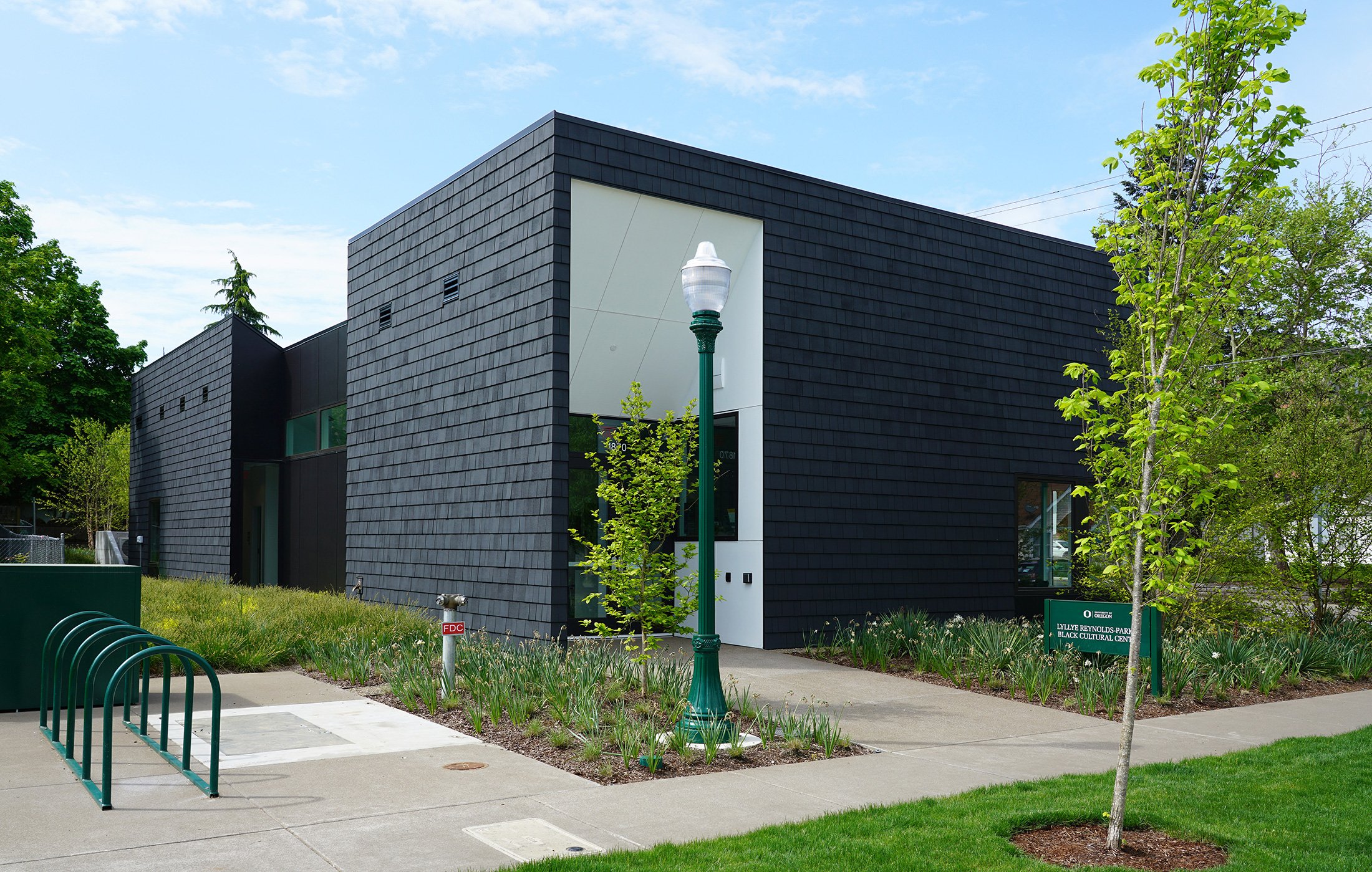
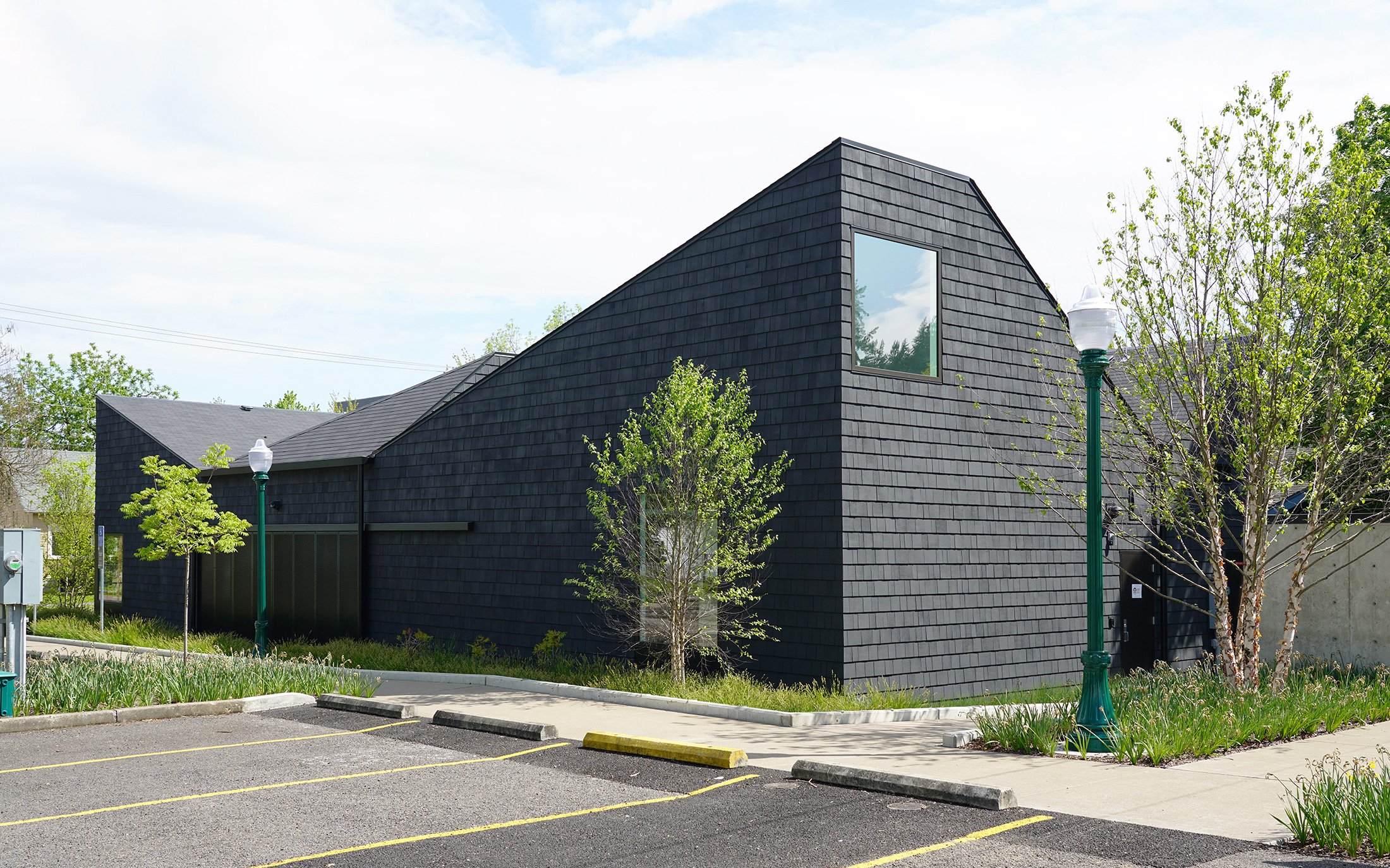
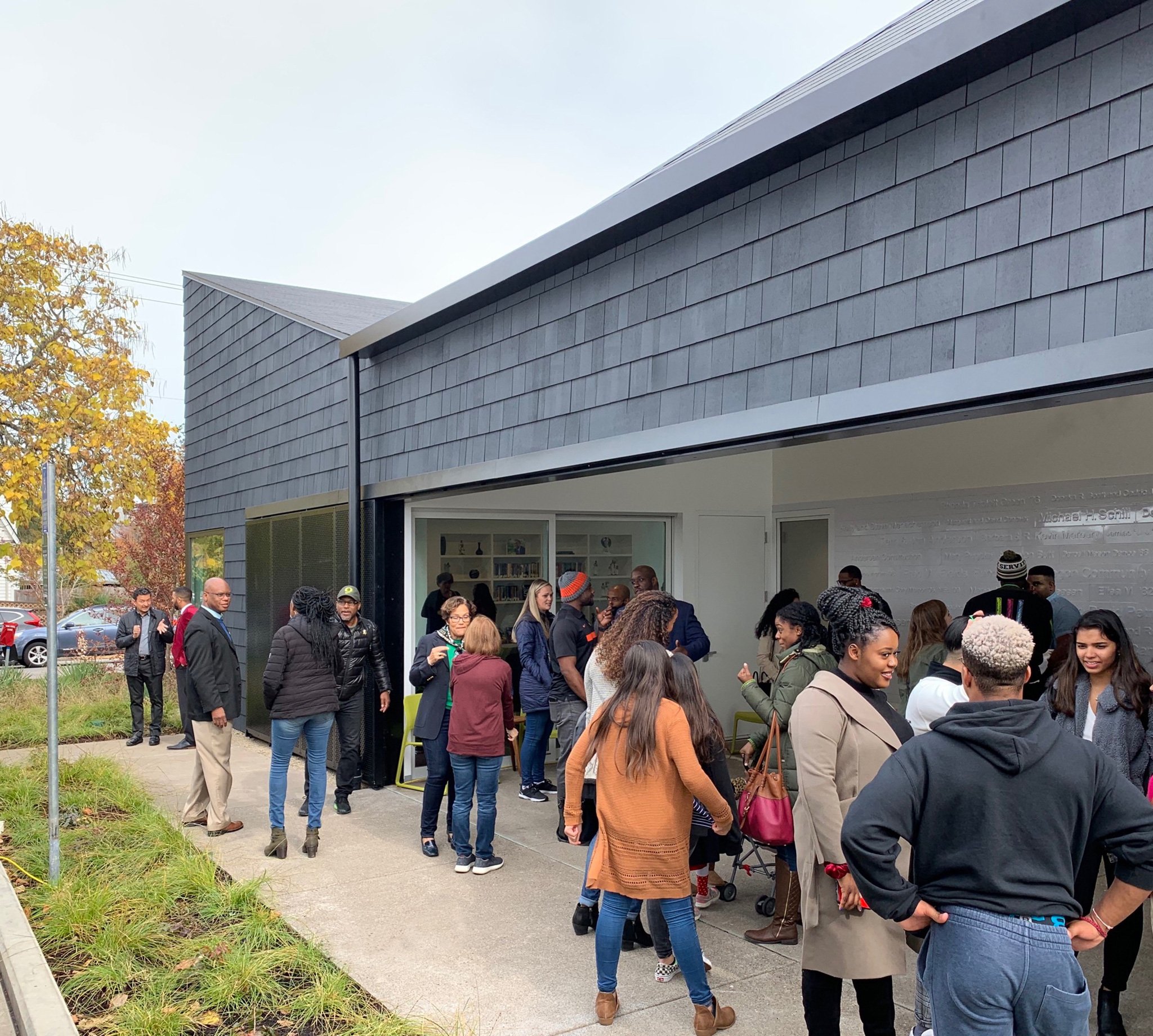
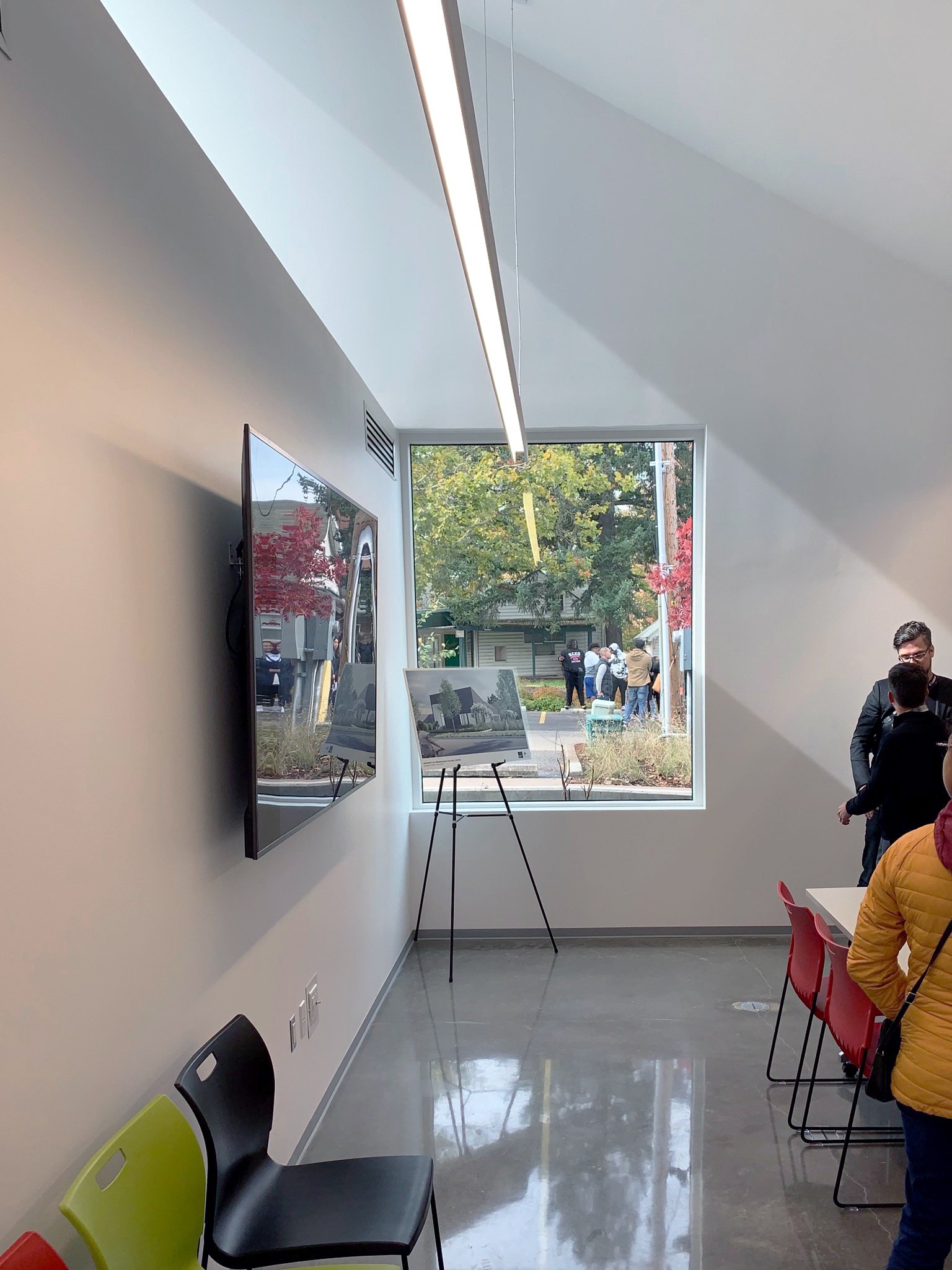
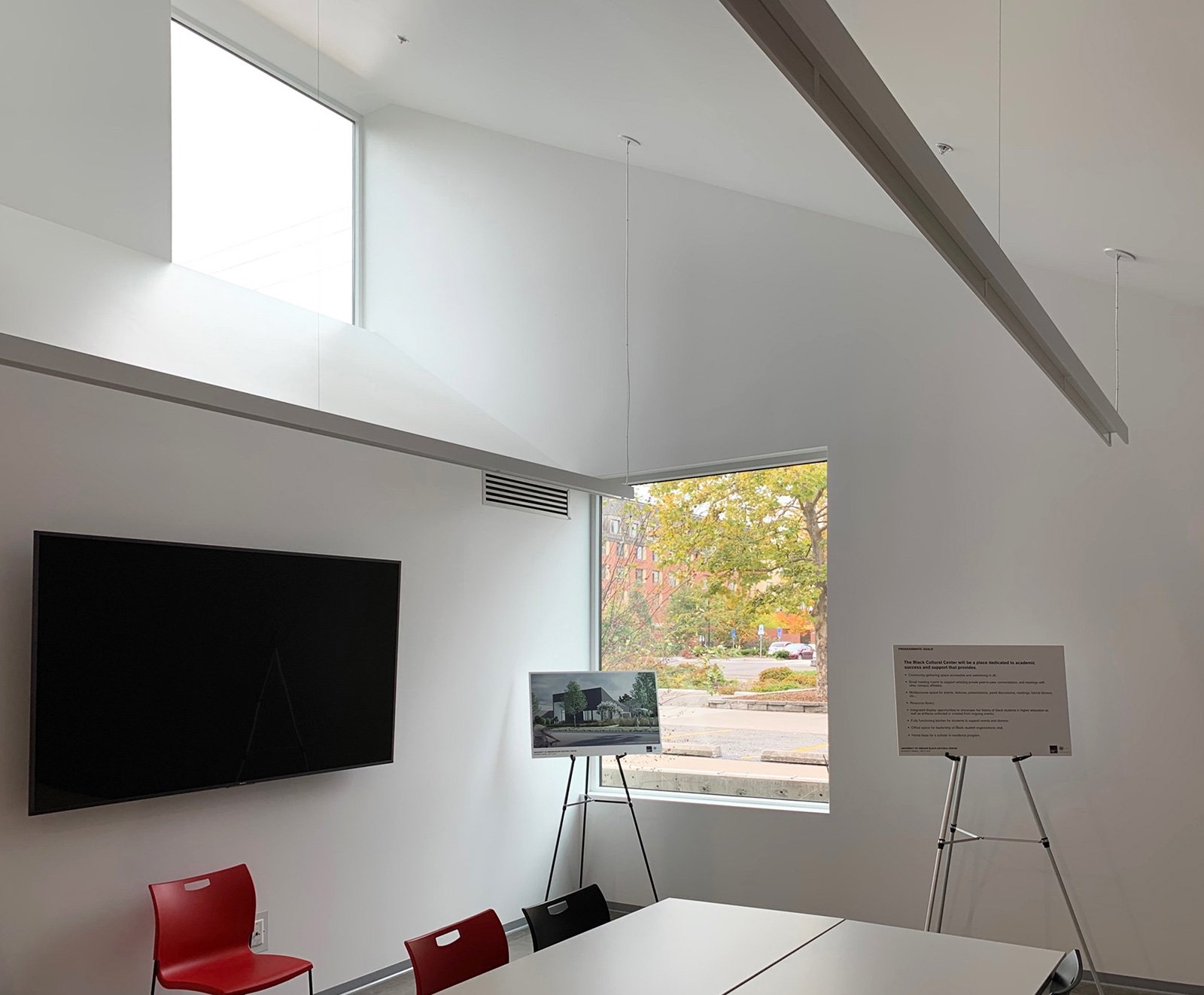
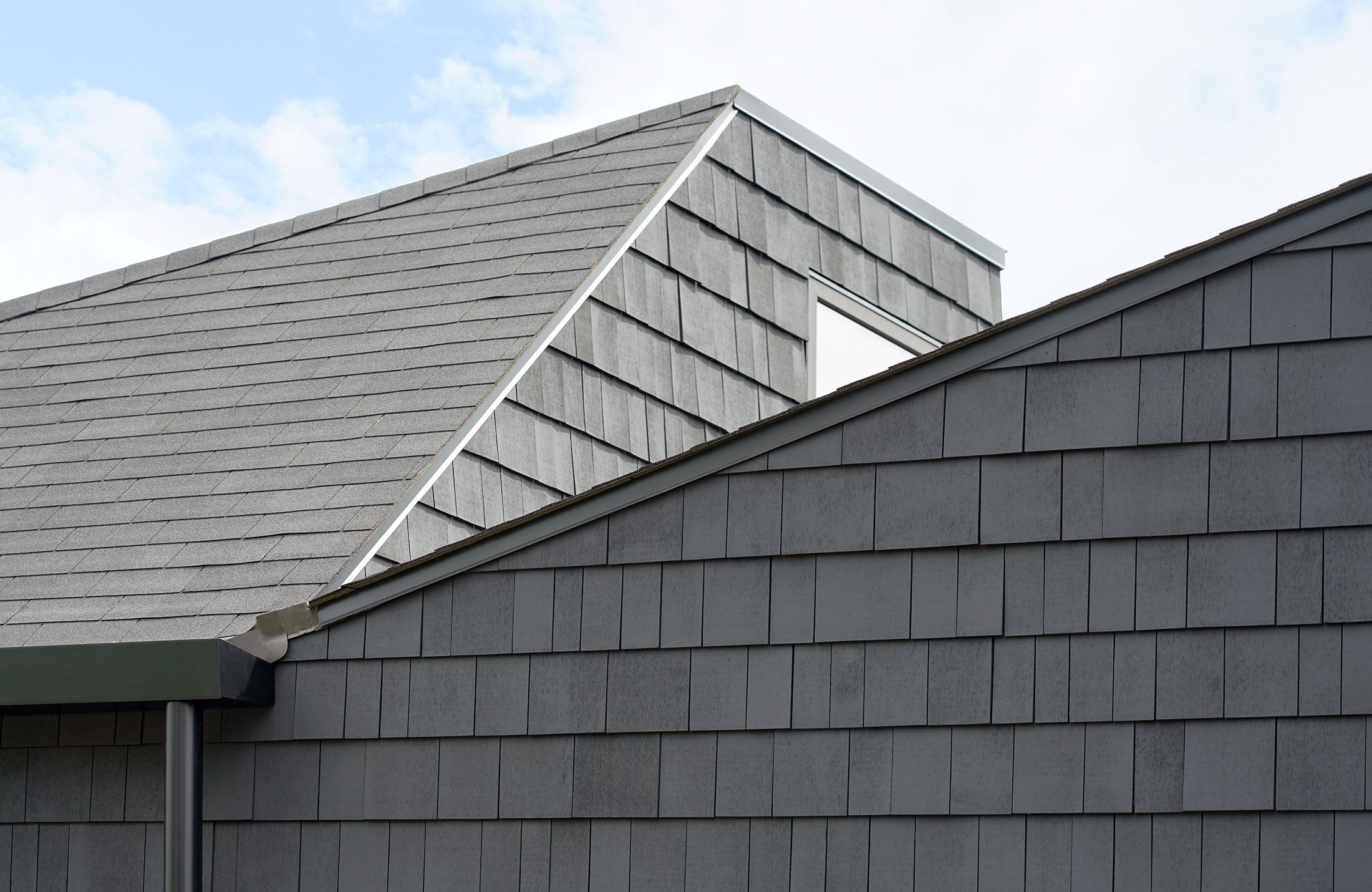
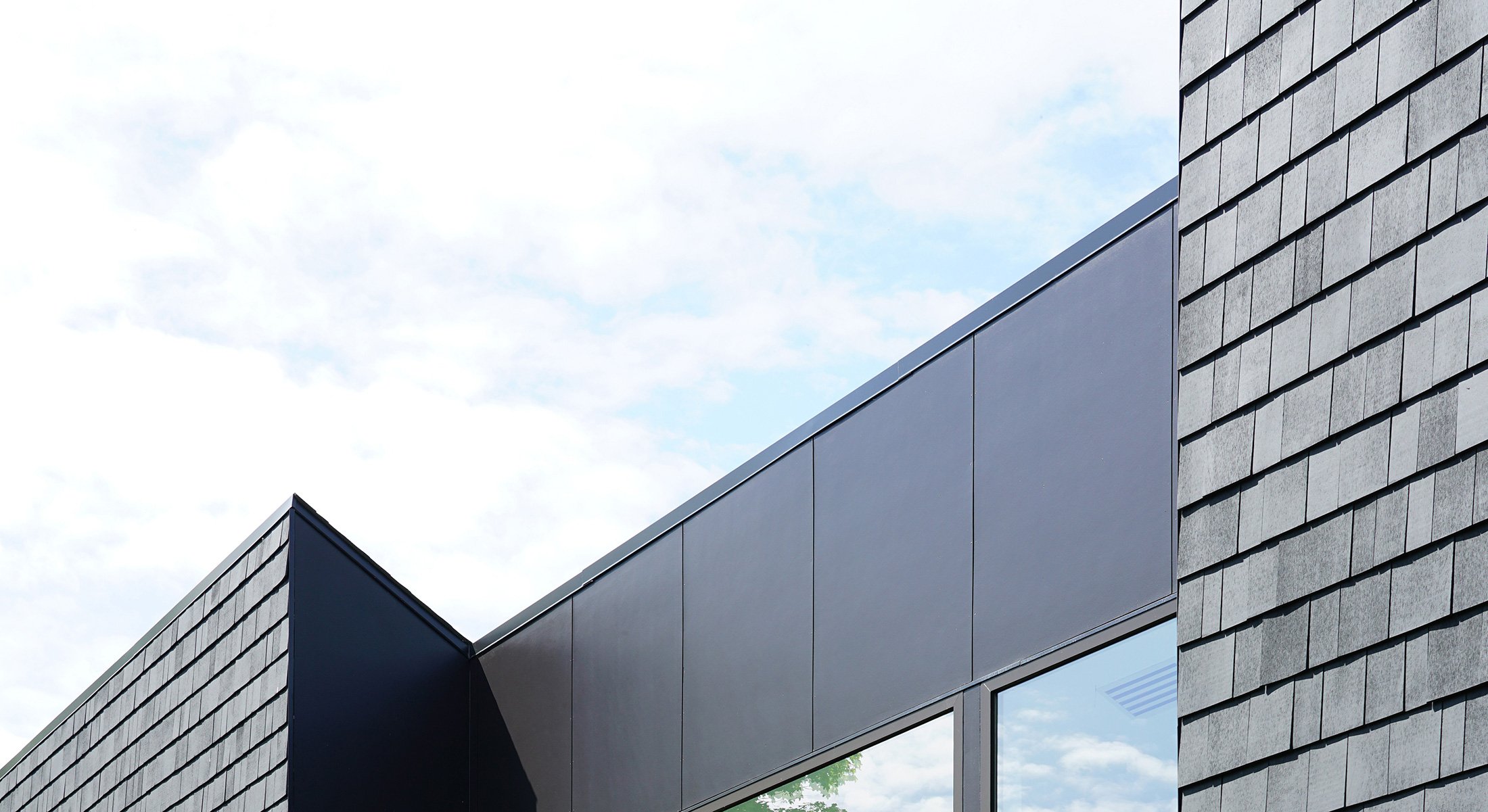

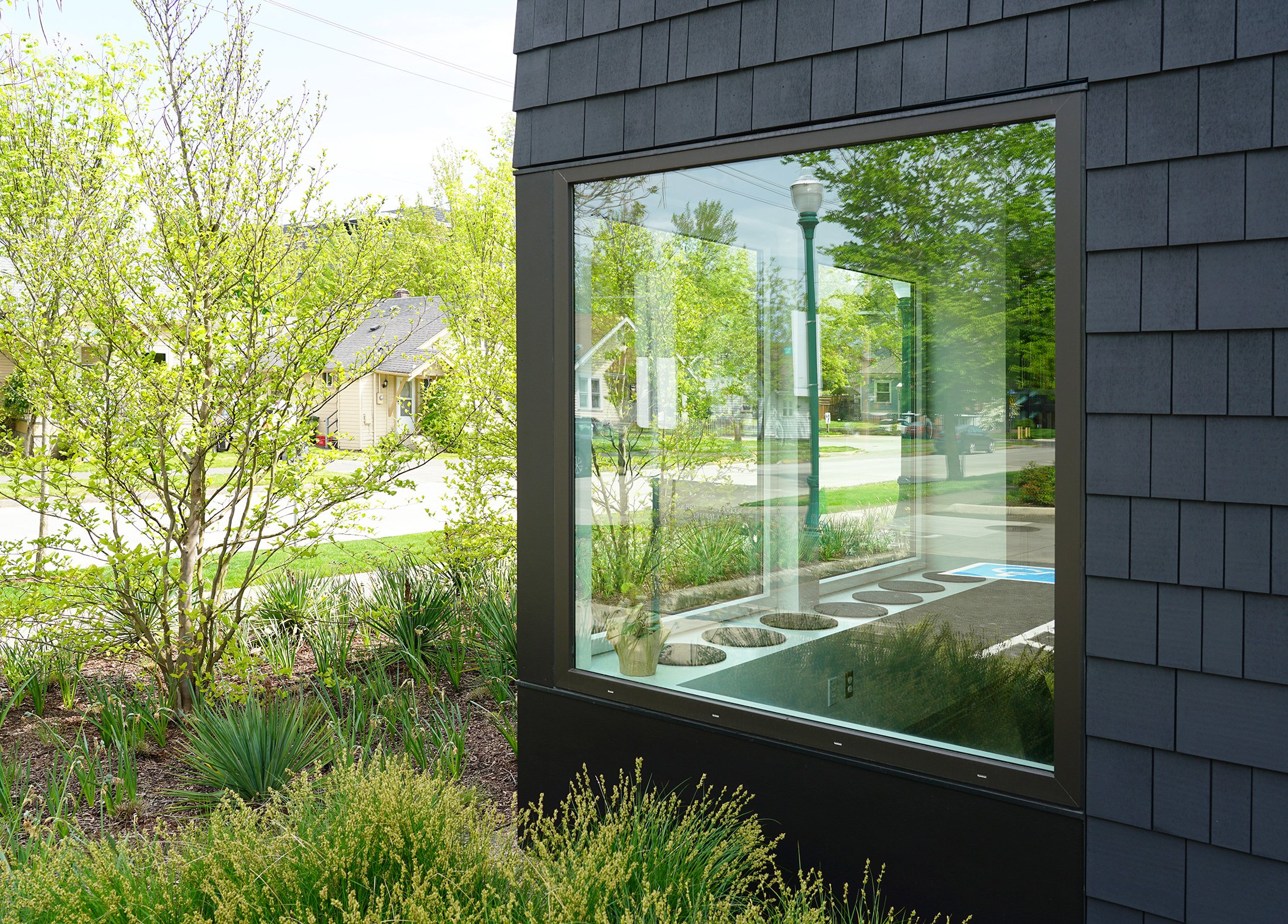

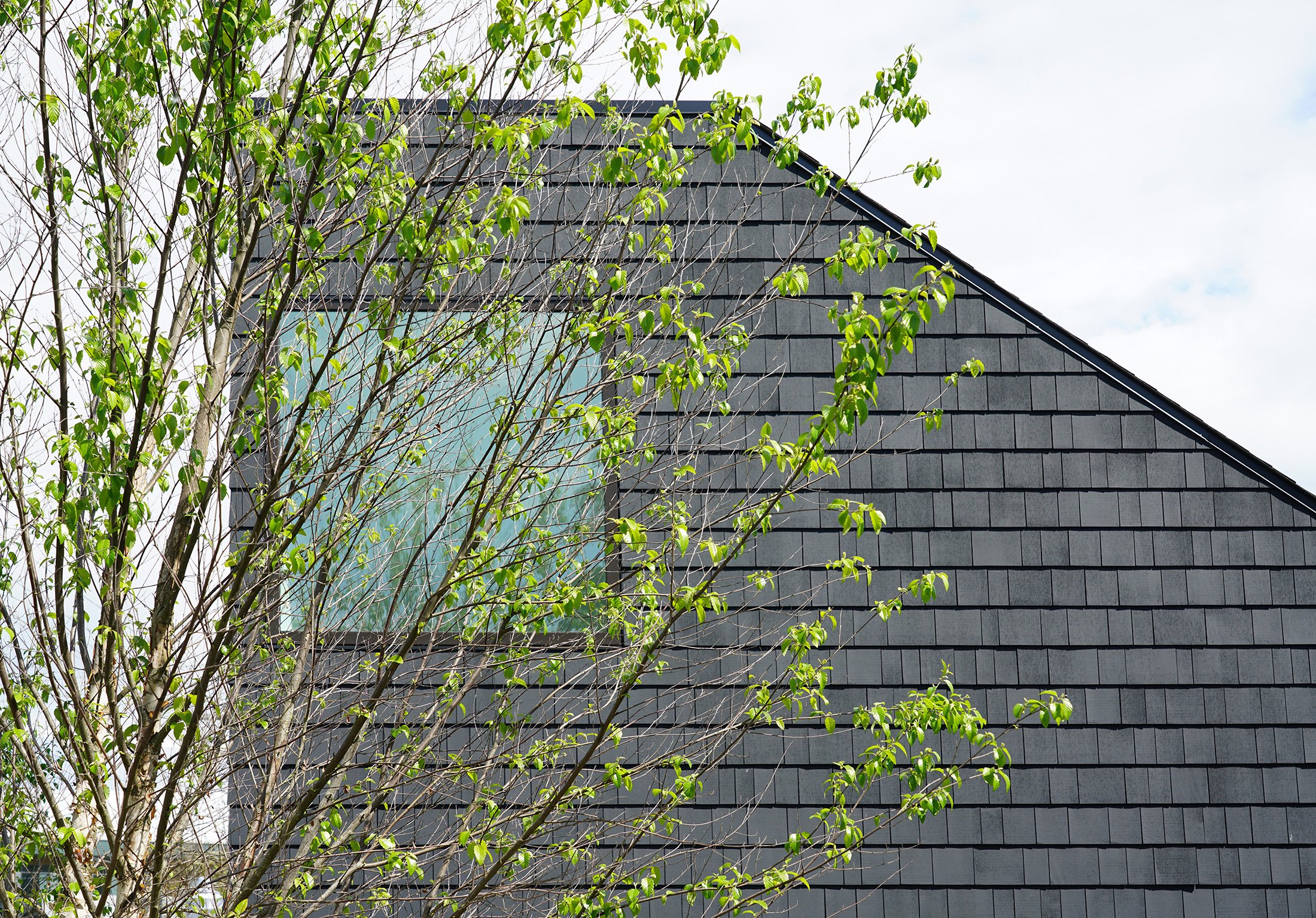
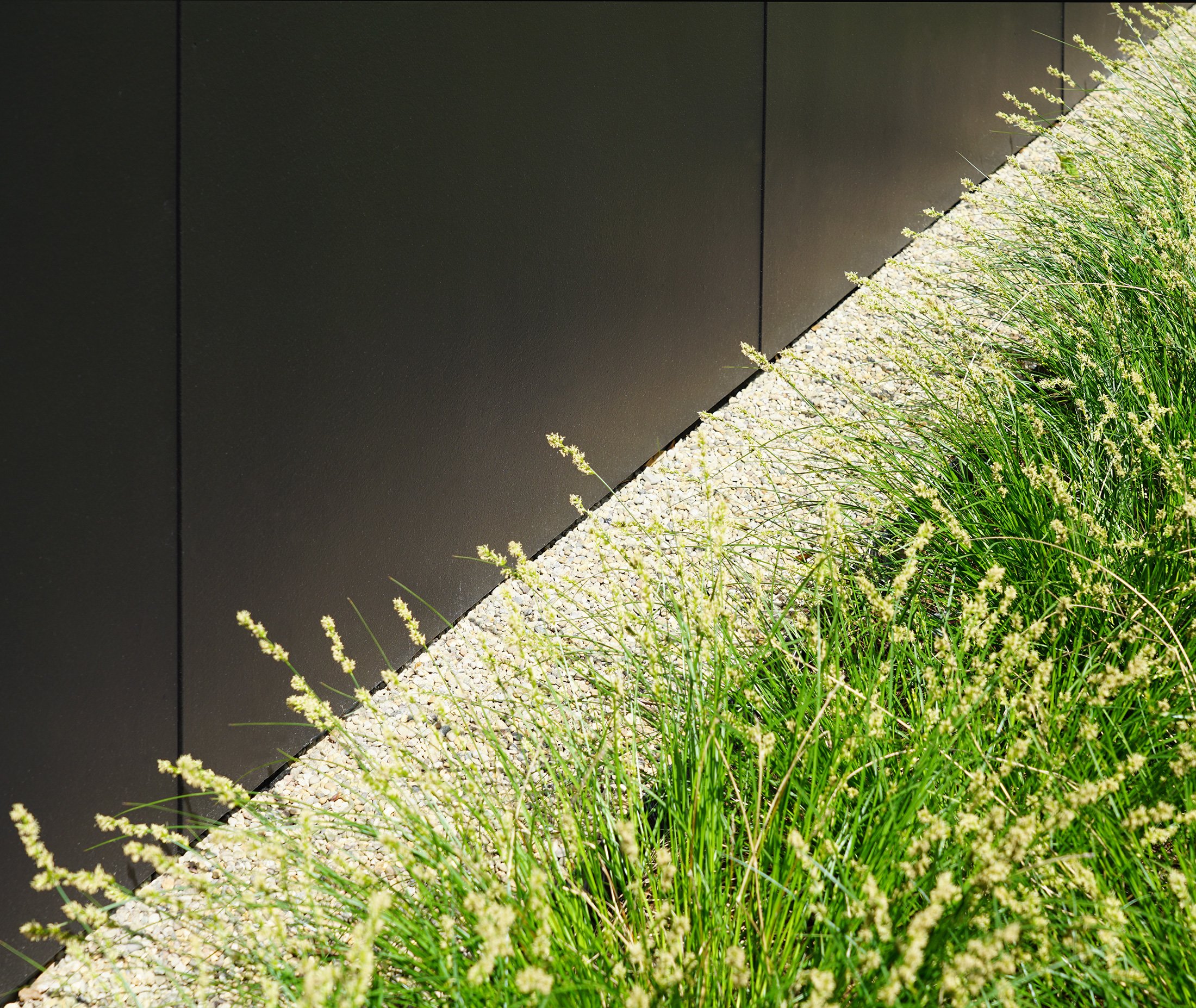
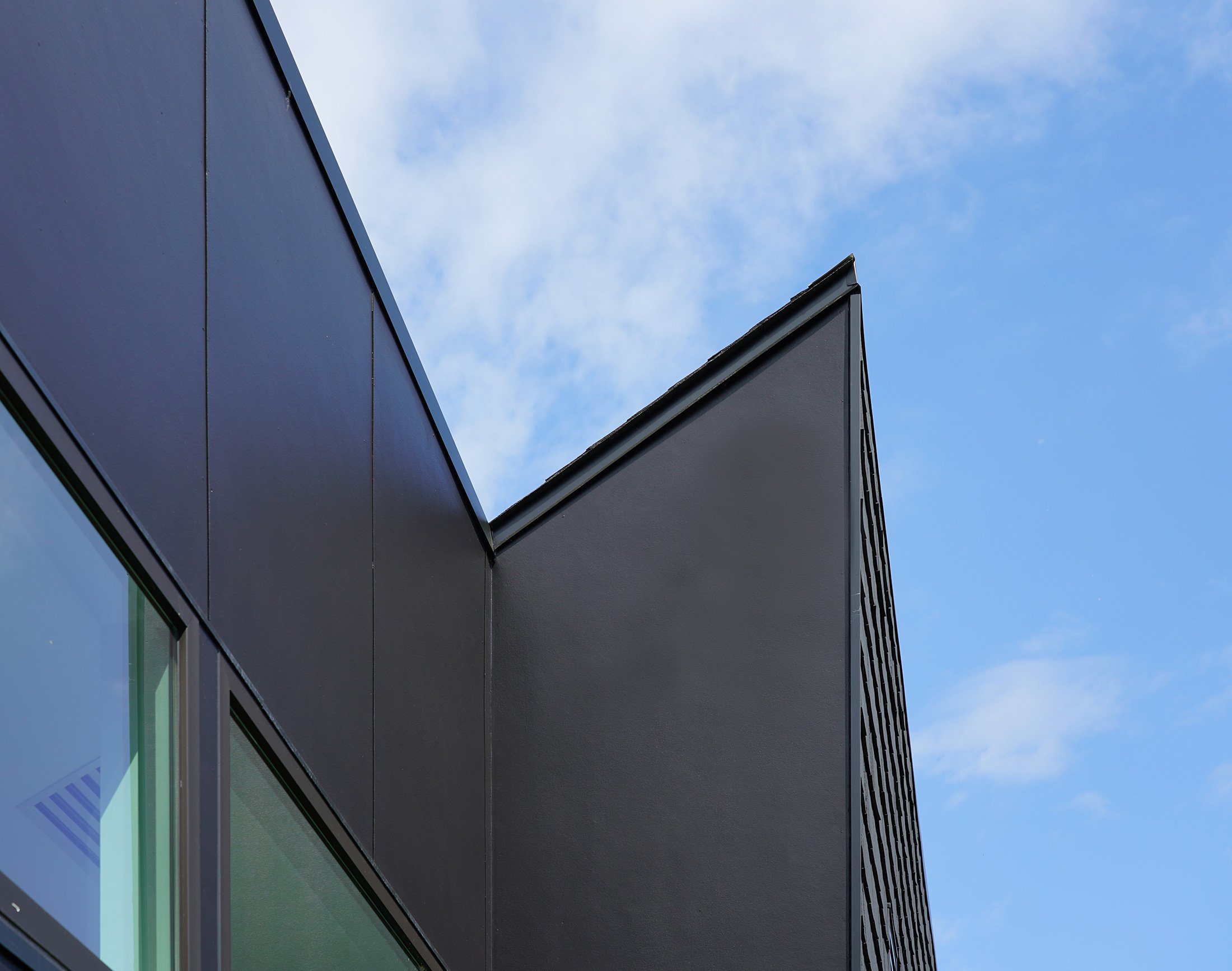
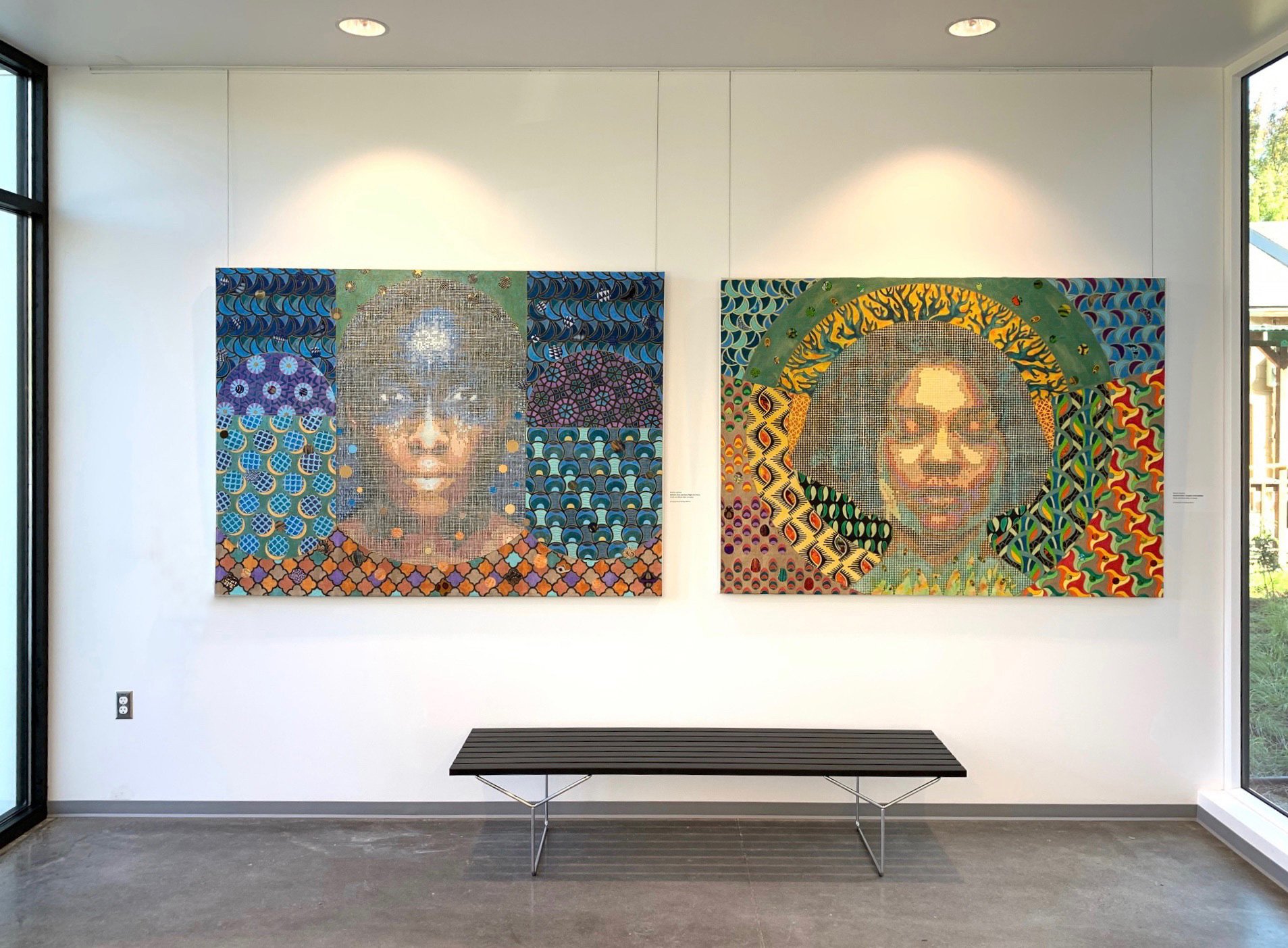
The “shotgun” house signifies a Black building type in the form of a domestic/institutional hybrid. A cultural artifact found primarily in the Southern United States, the type is well-suited for the BCC site—a shifting territory between residential and university buildings and the strong north/south configuration of the site. By its nature, the shotgun type is adaptable. Here expressed in the Black Cultural Center, its simple domestic roof forms split and invert, producing a “double” silhouette. Depending on a pedestrian’s approach, the building reflects surrounding domestic and/or institutional structures. Within this transforming urban type, the shotgun’s usual series of interior spaces generate compact program arrangements recalling the Veil.
Black Autonomy (i.e. a capacity for self-determining creativity), as conceived for the BCC, invents a dignified architectural form on a challenging site. The site projects a number of potentially negative connotations: it is on the margins of the university; it is adjacent to a service alley; future development surrounding the site is expected but yet unknown. Black Autonomy addresses these conditions primarily, through a series of subtle but significant contemporary transformations of the shotgun type. The thin proportion of the (inverted) type, for example, sits comfortably within the site’s limited dimensional east/west width. Displacing its iconic residential front “porch” to the alley-side, produces a strong institutional presence along 15th Avenue and a secure semi-public space for BCC visitors and students. Wrapping the building’s east and north faces with an inverted shed roof generates a strong institutional profile out of simple domestic forms. This creative response, synthesizing the University’s Vision Plan and challenging site predicaments, demonstrates Black Autonomy in architectural form.
As specific as the prior concepts—the Veil, the shotgun house, and autonomy—may be, they are open to any number of (Black) interpretations and uses. These same spaces offer curatorial opportunities for the BCC. The entry garden, gallery, multipurpose room and porch all represent spatial “placeholders” for performance, cultural agency and artistic expression. Of particular importance is the multi-purpose room. It envisions a chapel-like study space that invokes the historical and contemporary importance of Black spirituality and education. Blackness is ever changing. The opportunity for Black faculty, students and alumni to curate an institutional identity of their own produces a vibrant and sustaining community over time.
Project Information
Location / University of Oregon, Eugene, Oregon
Type / Cultural Center
Size / 3,100 sf
Status / Completed 2019
Role / Architect of Record & Design Architect in collaboration with Darell W. Fields / Maxine Studio
Cost / $1.96 million
Sustainability / LEED v4 NC Silver Certification
Awards
2021 Small Projects Award, AIA National
2020 Honor Award, AIA Northwest & Pacific Region Design Awards 2020 Merit Award, AIA Oregon Architecture Awards
2020 People’s Choice Award - Public/Institutional Category, AIA Eugene 2020 Colleague’s Choice Award, AIA Eugene
